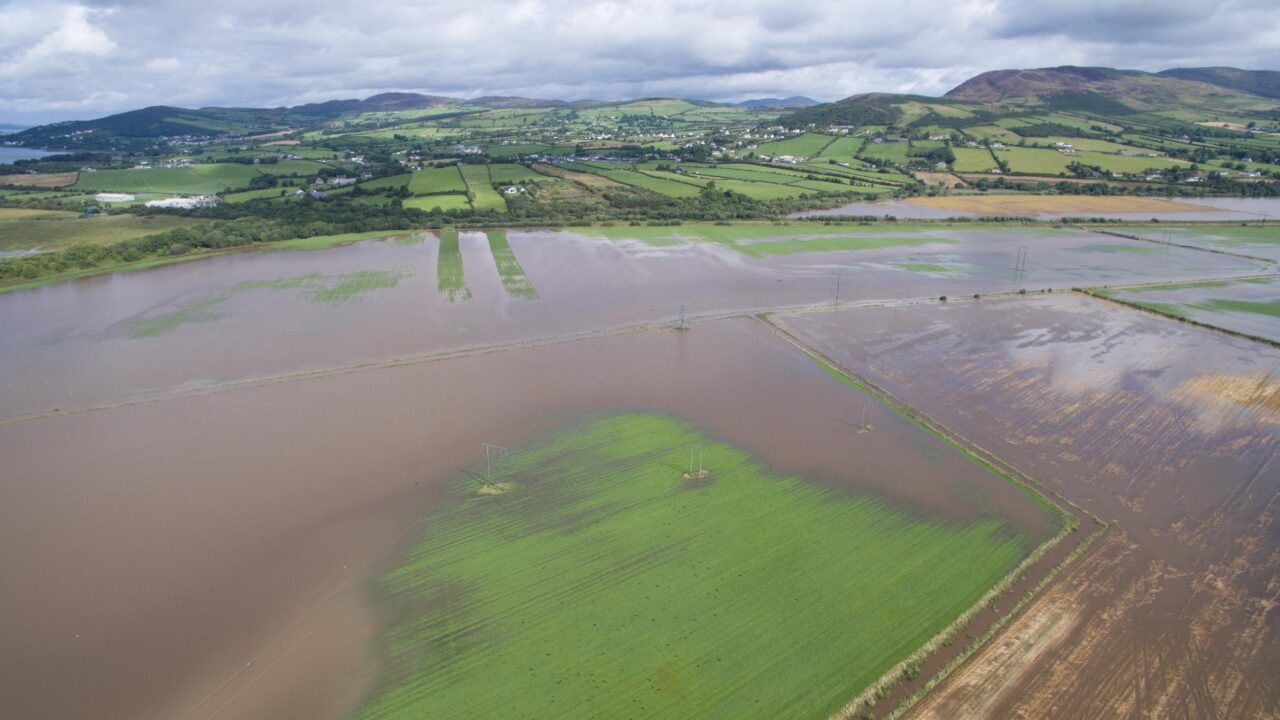One week on, farmers and their families affected by the flooding in the northwest of the province are still coming to terms with the fallout, according to the President of the Ulster Farmers’ Union (UFU), Barclay Bell.
“Immediately after the floods, I and Deputy President Ivor Ferguson visited a number of farms in the area and witnessed the devastation first hand.
“While the damage was relatively localised, we were totally shocked and saddened by the unbelievable scenes of destruction that we saw,” Bell said.
“We are currently working to quantify the impact of the flood, but clearly it is a very serious situation for those affected and many of these farm businesses will have a long and difficult road ahead of them.”
Bell stressed that the UFU’s immediate priority is to ensure that much needed practical help is available in the wake of the flood.
“Fields and sheds have been destroyed or seriously damaged from landslides. Livestock and crops have been lost. Crucial access roads and bridges have been washed away.
The result is that many of those affected are facing severe uncertainty about the future of their farm businesses.
“The UFU has already started holding clinics along with DAERA (Department of Agriculture, Environment and Rural Affairs), CAFRE (College of Agriculture, Food and Rural Enterprise) and Rivers Agency staff for farmers in these affected areas to provide assistance,” the president said.
“We clearly recognise that each individual case will be different, so it can’t be a ‘one-size fits all’ approach when it comes to offering guidance and support.”
Financial aid
The UFU is also investigating all possible options for financial aid for those affected by the flooding, according to the organisation.
“We are acutely aware of the financial pressure facing these farm businesses. Much of the damage will not be covered by insurance.
“Currently, we are reviewing previous financial aid schemes that could possibly also be applied to this situation.
“This ranges from the extension of the existing emergency financial assistance scheme for domestic properties to non-domestic businesses, such as farms, which we managed to secure during the extensive flooding in both Fermanagh and around Lough Neagh in 2015,” he said.
Bell also mentioned the Farming Recovery Fund that was available to farmers in England, for the widespread flooding that occurred there a few years ago, as another option.
We also believe that these circumstances justify an increase from the 50% advance already promised by DAERA to 70% in the level of the Basic Payment Scheme due to be released in October.
“Cash flow will be a critical issue for these businesses and we have already been talking to government officials and politicians at both local and EU levels about these options,” Bell concluded.

